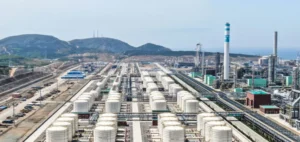The recent announcement by a US federal court of the auction of shares in the parent company of Houston-based Citgo Petroleum has prompted a strong reaction from Venezuela’s Oil Minister, Pedro Tellechea. The latter has called for an immediate halt to this process, arguing that Venezuela is on the verge of losing an essential strategic asset. The origin of this sale goes back to a case brought seven years ago by the mining company Crystallex before a Delaware court. Crystallex and 17 other creditors are collectively claiming $21.3 billion for expropriations and defaults in Venezuela.
A Divided Venezuelan Opposition
Representatives of the Venezuelan political opposition and the supervisory boards of Citgo, the seventh largest refiner in the USA, recently asked the White House and the US Congress to suspend the auction for a period of 60 days, pending the outcome of Venezuela’s presidential election. However, Nicolas Maduro’s government is calling for an indefinite suspension of this process imposed by the US justice system. “Have they asked the Venezuelans what to do with our assets?” questioned Tellechea, who is also president of state-owned PDVSA, Citgo’s ultimate parent company. He criticized the sale, claiming that “our property is being sold without asking our permission, without any consultation.”
Renom Investors and Financial Challenges
The first phase of the auction, held in January, was described as “disappointing” by the lawyers representing Citgo. However, the sale has recently attracted a number of high-profile investors, including Elliott Investment Management, Centerview Partners and US energy companies such as ConocoPhillips and Koch Industries. The mining company Gold Reserve, whose $1 billion claim against Venezuela was validated by the court, has also submitted a credit offer. Tellechea also pointed out that the country’s crude oil production continues to grow, reaching 950,000 barrels per day. Individual licenses have been granted to foreign and local companies to operate in Venezuela, following the non-renewal of a broader US license in April. Citgo’s fate therefore remains uncertain, with major economic and political stakes for Venezuela. The Venezuelan government sees stopping this sale as a necessity to protect national interests and maintain strategic control over its energy resources.





















